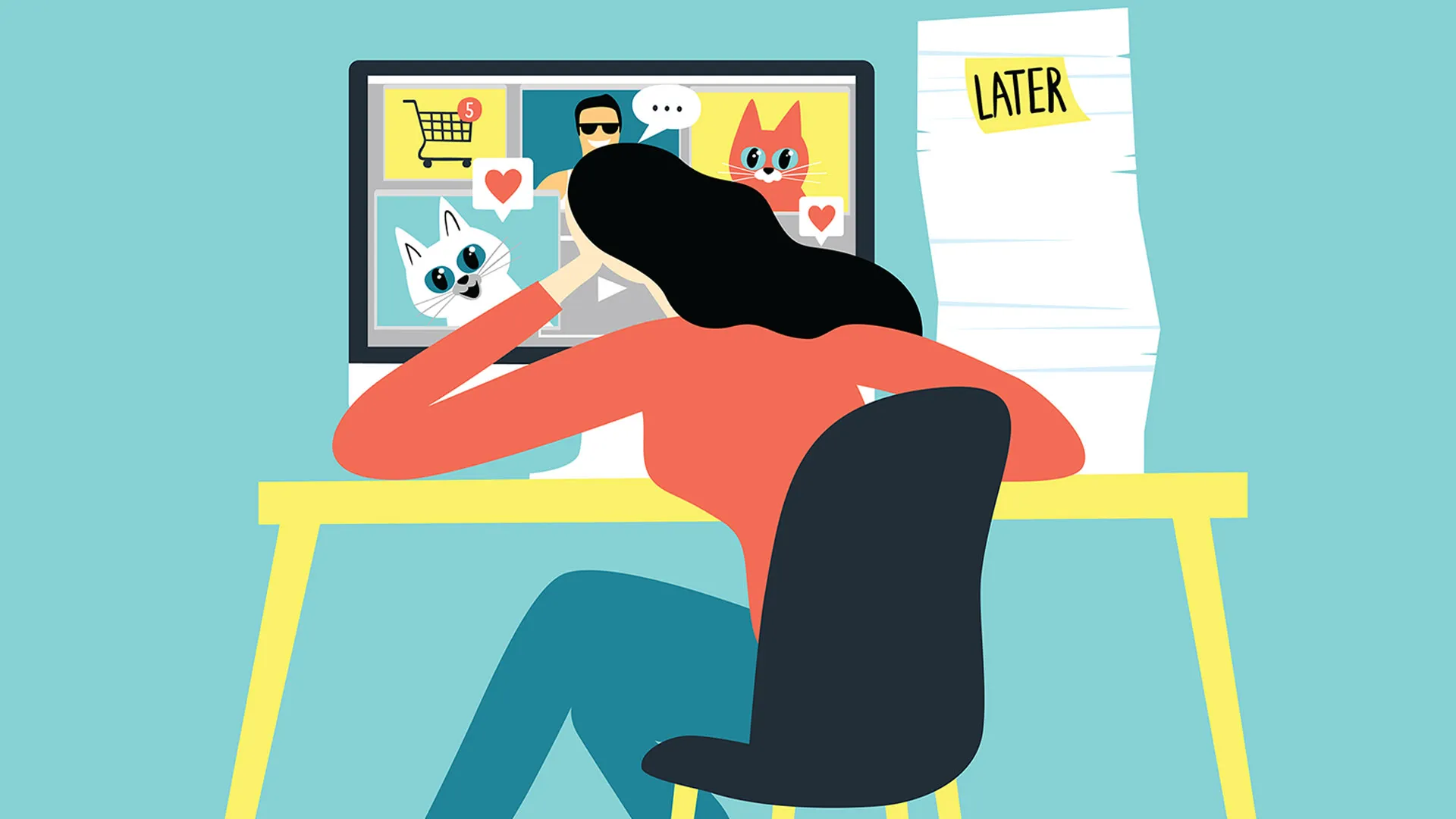By Andreas Gkoumplias,
It is a day before the exam, mere hours before taking the final test and yet you have not opened all the notes you have gathered so hard throughout the year. Or perhaps you still have not started working on that work project that your boss had demanded 3 weeks ago and the deadline is due tomorrow. Your mind races as you try to gather all your thoughts together and put them in line, in a desperate attempt to save what seems doomed. If you are wondering how you got there, the answer is simple: procrastination.
In simple words, procrastination is when you choose to do something completely different than the task you are supposed to be doing. It is totally different than laziness, as in the first case you are being active and you are doing stuff, whereas, in the second one, you are being apathetic and mostly inactive. There are a lot of reasons why people procrastinate. Organizing time for certain activities can really be a challenge to some people or also adhering to a strictly timed schedule can be challenging as well.
According to the famous psychologist Sigmund Freud, people tend to procrastinate because they prefer to avoid or at least postpone negative feelings and the chores/errands/tasks that provoke them, focusing instead on something that is pleasant and enjoyable. One last reason could also be a mental disorder like ADHD, that prevents an individual from focusing on a sole task, whether that one is important or not. It should also be mentioned here that taking time to relax should not be considered the same as procrastination; quite the opposite, since it helps us unwind, recharge our batteries, and move on in our day easier.

Ok, so it is plain as day that pretty much everyone procrastinates. And that is actually acceptable as long as it does not affect work, studies, and other major paths that each one of us has chosen in our lives. So how possible is it to limit procrastination, to make ourselves more efficient and effective? For one thing, long to-do lists for a specific day are a huge no-go, as they can be distracting and very overwhelming. Instead, breaking down tasks one by one and starting from the easier, most achievable ones and the ones that bring us “joy” upon completion is the way to go. Another good way to limit procrastination is to not shift (as much as that’s achievable) our focus from the goal that we have.
Evidently, that is hard to do with so many distractions, but keeping focused and concentrated to finish each task one at a time can really work wonders. Lastly, rewarding yourself after the successful completion of a task is another measure that could possibly work. The idea behind that is that the earlier and the better you complete a task, you should reward yourself with something, like 10 minutes of break, or an ice cream and so on. In that way, your brain tends to think that in order to get the reward the task needs to be done and so it sometimes results in better focus throughout the task.
Let us be honest; we all know the issue with procrastination, yet, as a habit, it is one of the habits that are extremely difficult to change or lose completely. If we are being honest, not a lot is going to change drastically, but it is always nice to give it a shot and see how things flow.
References
- What is procrastination. procrastination.com. Available here
- Procrastination. jamesclear.com. Available here
- Understanding and overcoming procrastination. mcgraw.princeton.edu. Available here




